SUMMARY
This is AI generated summarization, which may have errors. For context, always refer to the full article.
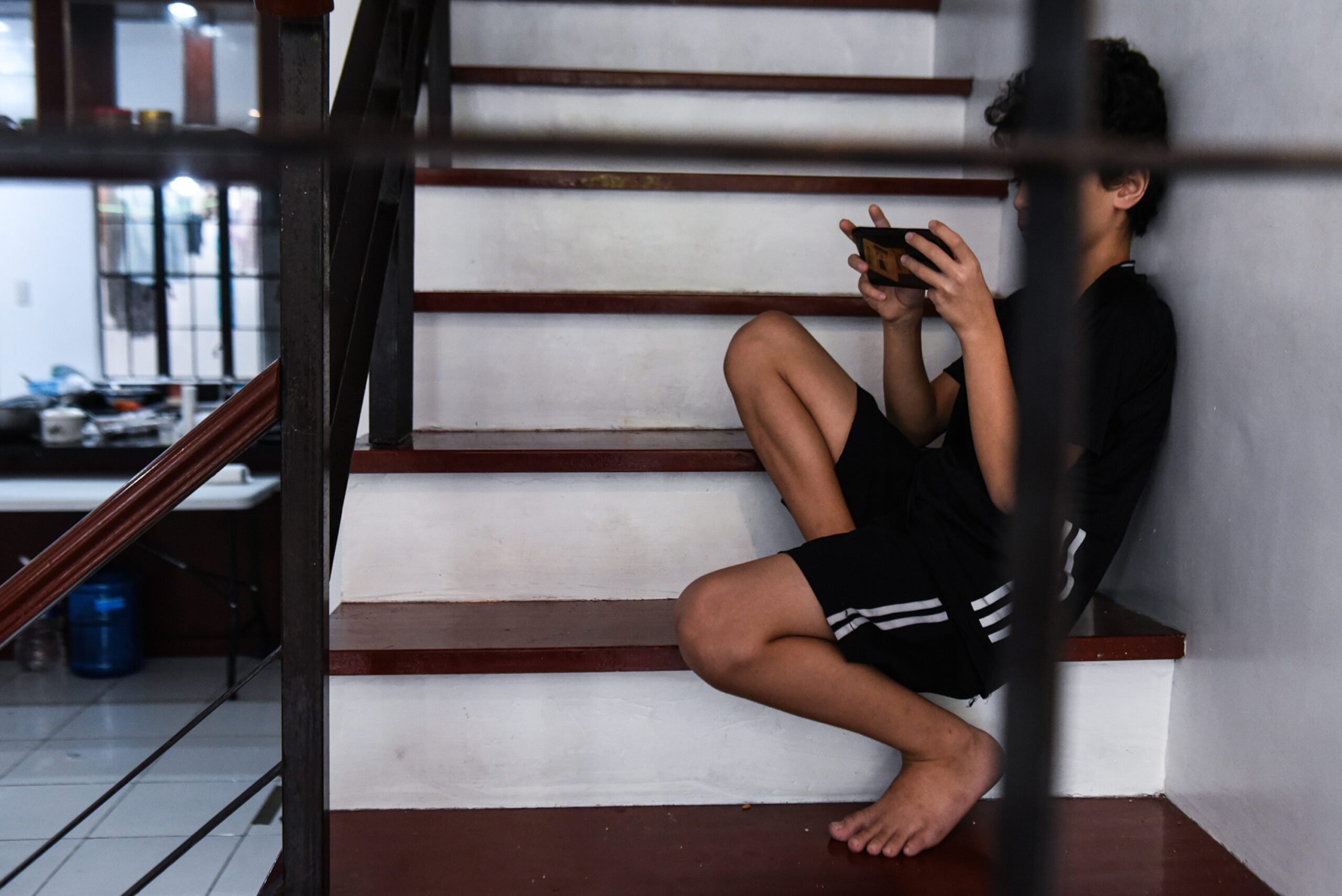
The refugees interviewed for this story requested to withhold their real names for fear of reprisal. They all wish to go back to Gaza as soon as they can.
MANILA, Philippines – “Think of your little children,” Teresa remembers Philippine embassy officials telling her as they repeatedly pleaded that she evacuate with her three toddlers and leave their Palestinian father behind.
It was early November in 2023, and the Philippine government was repatriating Filipinos and the part-Filipino children out of war-torn Gaza as Israel pounded on the enclave it had occupied since 1967 and blockaded since 2007. Their Palestinian spouses had to be approved to cross the Rafah border in Egypt via complex negotiations among nations, particularly Israel. Teresa’s children did not want to leave their father Azeem, a university professor; she also did not want to leave him, but it was an impossible choice.
They missed the first batch of evacuation, so the embassy returned to her. “Maybe you can still change your mind, your children are still so small, think of them,” the embassy pleaded once more. The Rafah border closed that day, so the departure of the second batch was delayed. The embassy had a proposition to Teresa: go to the border with Azeem, and let him plead with border officials. So off they went.
At the border, the Palestinian men went in and out the offices distraught, as their Filipino wives cried. Teresa and children crossed the border first to the Egypt side, separated only from Azeem by the gate.
Filipinos waited 12 hours as Egyptians cleared them. Soon Filipinos began stepping into the embassy bus, but Azeem was still on the other side. “Your fellow Filipinos are already on the bus, maybe you can go with them and go ahead,” the embassy told Teresa. That was the third time she was being asked to leave her husband. Her son cried for his father, but he was visibly exhausted, surviving only on biscuits. Azeem told his family, “Go, and I promise I will stay here and find a way.”
Teresa, Azeem, and their three children are among the more than 50 evacuated by the Philippine government as Israel’s bombardment reached a month in 2023. They were temporarily housed at the University of the Philippines (UP) campus in Quezon City, before they resettled in rental housing at a subdivision outside the capital. They pay rent with the help of donors. The Palestinians’ status is still in limbo.
Highly sufficient families in Gaza led by Palestinian patriarchs who are engineers, dentists, and academics, one challenge for refugees is relying on donors. Without any official status in the Philippines, they cannot find temporary jobs.
“We’re shy to receive donations, we feel down, but what can we do?” said Milana, a Filipino mother to six children. The Filipino spouses take the lead now in navigating the relationships as they try to survive resettlement.
“Our stay here in this subdivision is not sustainable, the rent is high,” said Milana. “We want to go back to Gaza soon.”
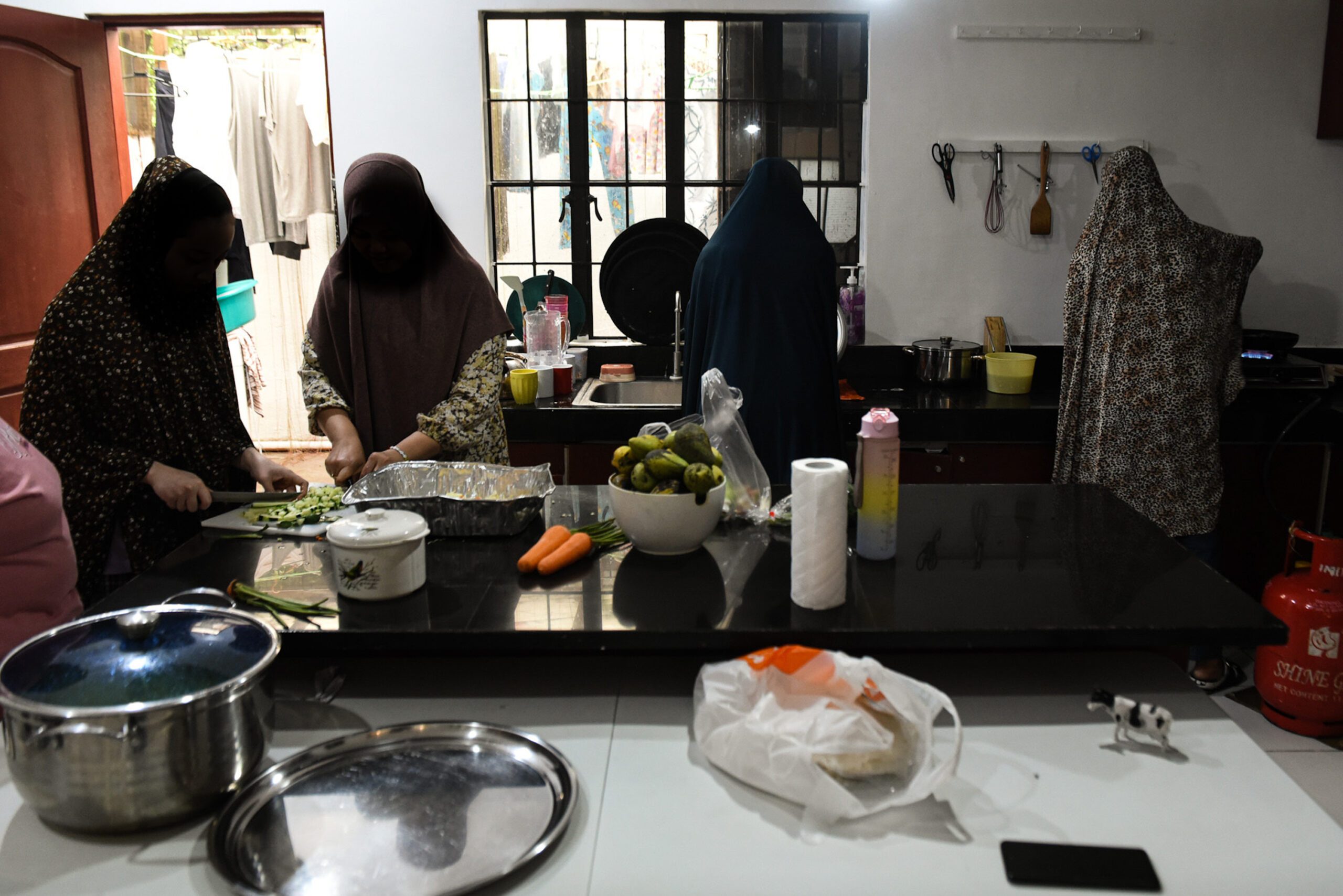
The ICJ order
In The Hague, the government of South Africa filed a complaint before the International Court of Justice (ICJ), the court of the United Nations (UN) also known as the world court, accusing Israel of committing genocide against Palestinians. A country that also suffered apartheid, South Africans invoked their right under the convention to prevent genocide from happening. It operates under the international law principle that nations have a responsibility to the world to protect everyone, even if they are not directly affected.
Suheyl, a university professor in Gaza who evacuated to the Philippines with his Filipino wife and seven children, watched the ICJ hearings from his phone in their rental home. But that’s also what he felt the world has been doing: just watching.
“I feel like the world has no human rights for us. Even international law is not with us. Why? We are not human? When the war in Ukraine happened, many countries, the United Nations, fought for Ukraine. What’s the difference with us? Everybody’s just watching,” said Suheyl.
Virtually the entire UN system, except the Security Council, has called for a ceasefire. There’s a consensus in the international community that wants Israel to stop its hostilities, except Israel’s allies who happen to be world superpowers like the United States and the United Kingdom. With their permanent membership and veto power in the UNSC, the council’s last act was a watered down resolution that only called for unimpeded access of humanitarian assistance.
In an order on Friday, January 26, the ICJ by majority ordered provisional measures, or interim demands pending a final judgment on whether Israel is indeed committing genocide. On the surface, the language of the court order is strong, that Israel “shall take all measures within its power to prevent the commission of all acts” that amount to genocide.
At closer scrutiny, the court ordered Israel not to do acts that are legally considered genocide. In the real world, Israel has continued bombardment claiming they are acts of self-defense, and acts that have no genocidal intent. (A crucial element to declaring an event genocide is the intent.)
Which is why Palestinians would have wanted the court to explicitly order a ceasefire, like it did for Ukraine in 2022 when the ICJ ordered Russia “to immediately suspend military operations.”
For Teresa, “It’s as if the court said, ‘Okay, kill slowly.'”
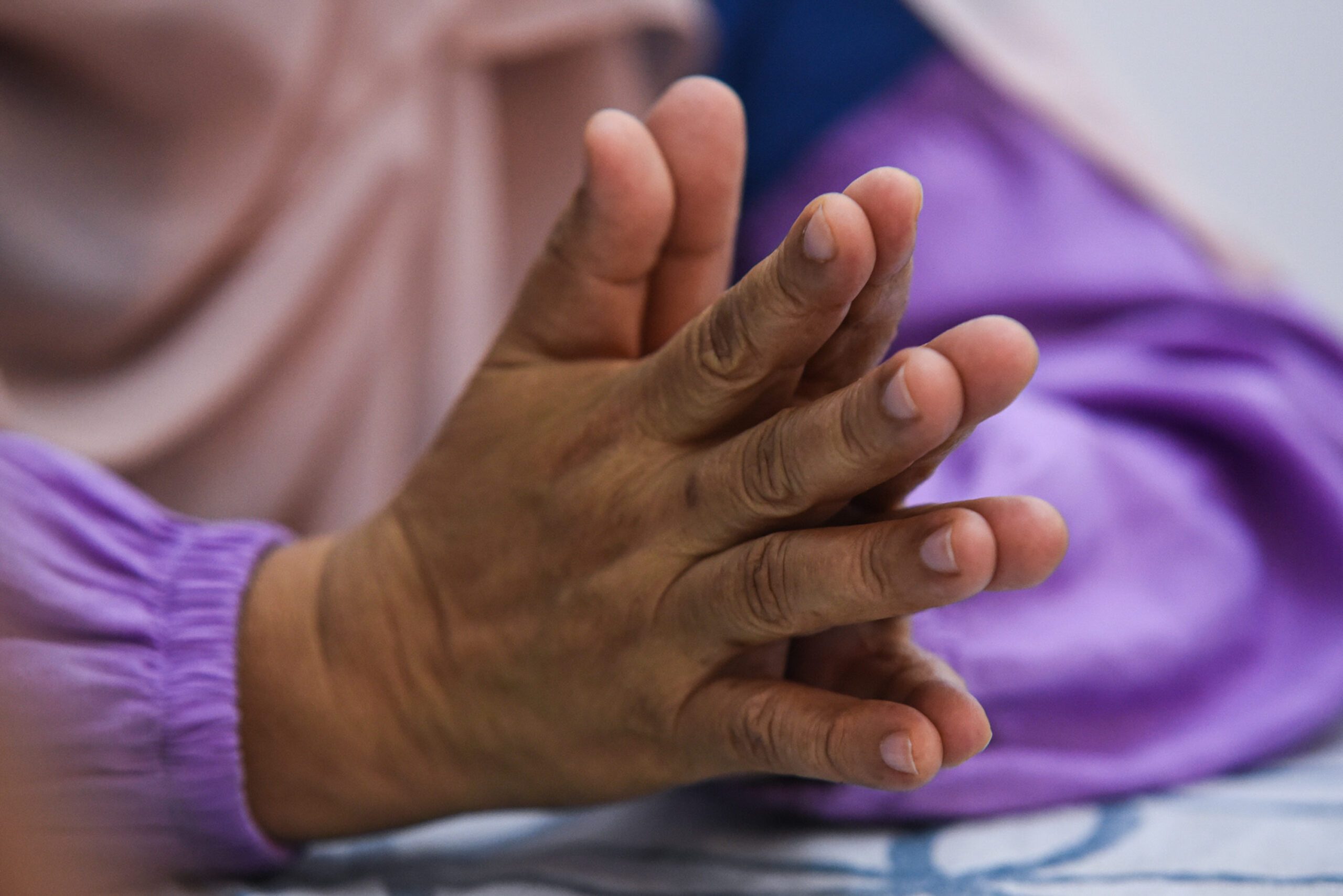
A leverage for nations
The ICJ also ordered that Israel “shall take immediate and effective measures to enable the provision of urgently needed basic services and humanitarian assistance.” Yet on the same day of the order, the US announced it will cut funding to the UN agency for Palestinian refugees or UNRWA, a lifeline for many Palestinians. The US said it is investigating Israel’s claims that UNRWA staff were involved in Hamas’ attacks against Israel on October 7.
What the ICJ order could do is empower nations to protect Palestinians in their own capacity, according to Michael Tiu who teaches international human rights law at the University of the Philippines (UP).
Evidently, several European nations have vowed to continue funding UNRWA even as the official position of the European Commission is to investigate Israel’s claims and that “no additional funding to UNRWA is foreseen until February.”
“In other areas, they are allies of US and Israel, but for this, they will not stop funding UN relief work. The order forms part of that confidence,” said Tiu.
Tiu still considers the ICJ order as “a quiet way for the court to say stop the hostilities that cause all this,” but added that the most significant part of the ruling was ordering Israel to stop the incitement of genocide.
“[The statements of Israeli leaders] still give gasoline to the fire, and the military takes cues from the leadership,” said Tiu.
‘The world now knows’
Suheyl has lived through seven wars. Luana, his Filipino wife of 31 years, has also learned how to live under an occupation.
Luana thought that this current war was like the others, that the bombings that occur every five minutes, according to her – with impacts that feel like something is pushing them down on their heads – would be over soon enough. Until her teenage son was injured when he went outside to buy diapers for his younger siblings.
“So many wars have passed me by, we survived. But this war really scared us,” said Luana, who also pleaded for the approval of Suheyl so the whole family could evacuate to the Philippines.
“I don’t watch the news anymore. I can’t bear it. When we were there, we would hear every day that a relative has died. I did not cry. Now I’m here, now I feel it,” said Luana.
Luana’s small children have been coping in resettlement, enjoying the company of other Palestinian children, but they still run away when they hear even the popping sound of a tricycle, thinking it’s a bomb.
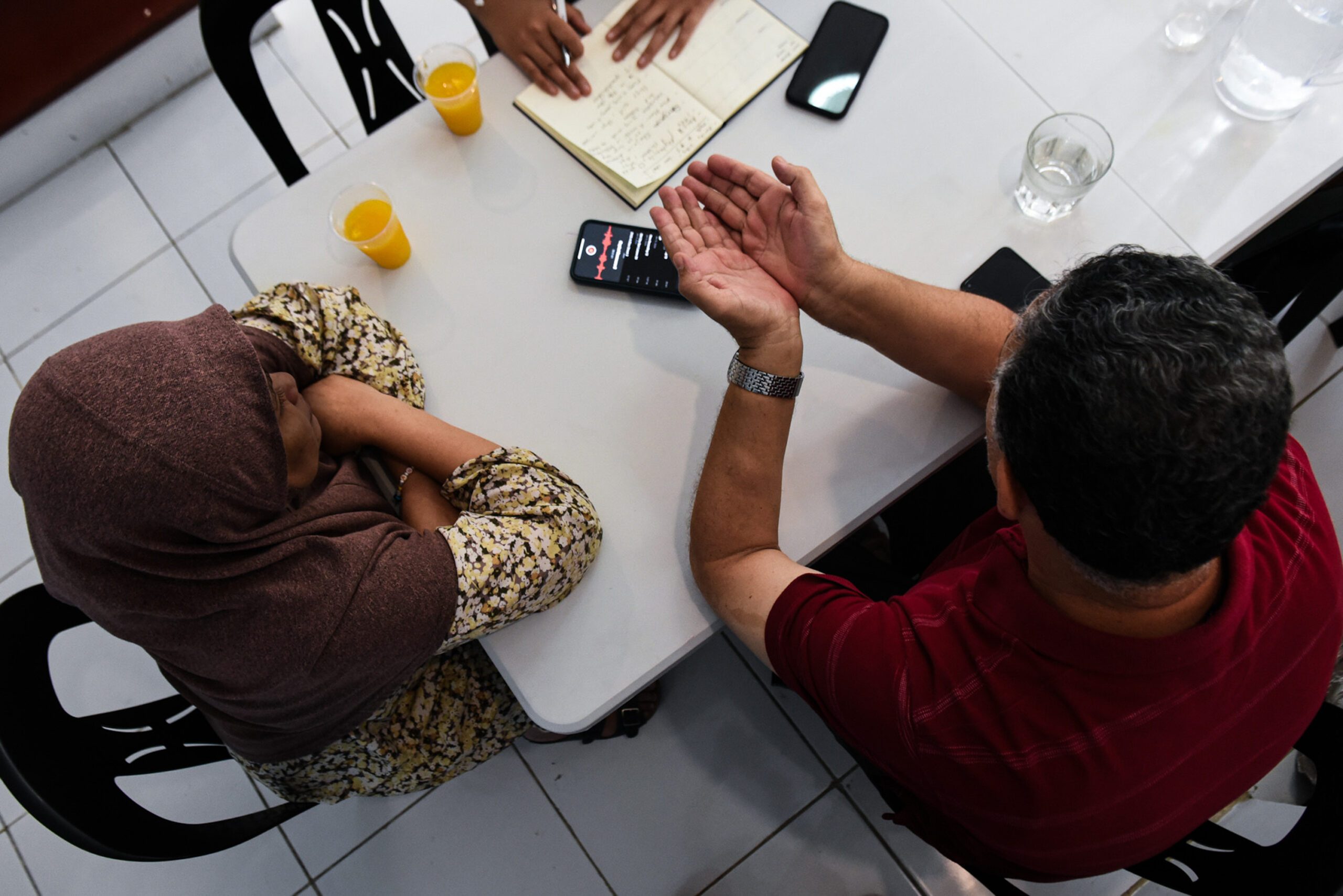
In the order, the ICJ described the dire situation: 25,700 Palestinians killed, 63,000 injured, 360,000 houses destroyed, and 1.7 million displaced.
“The Court considers that the civilian population in the Gaza Strip remains extremely vulnerable,” said the ICJ, and then ordered Israel to submit within a month a progress report on how its military prevented loss of life.
This, said Tiu, makes Israel answerable “and it’s important that now they are forced to engage with the accusations instead of just relying on their curated statements.”
But for Milana – who stays up every midnight for the chance to talk to her 59-year-old husband and another child left in Gaza – those legal values offer no real promise to a standstill life they now live at the mercy of donors, and the Philippine government, whose official foreign policy is to stand by Israel. (The Philippines has since voted for a ceasefire, a change from its earlier abstention.)
Milana worries for her family this winter, as there is no fuel for heaters, their windows are broken, and they rely only on blankets to fight the cold.
“I expect them to rule that Israel is not guilty,” said a resigned Milana. “But at least now the world knows what Israel is,” Milana added.
– Rappler.com
Here’s how to extend help to the Palestinian refugees in the Philippines
Add a comment
How does this make you feel?
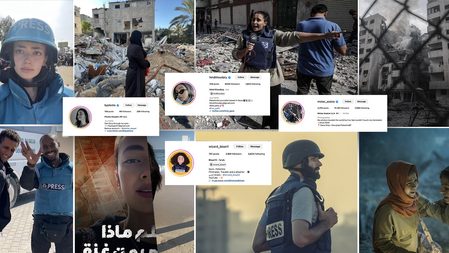



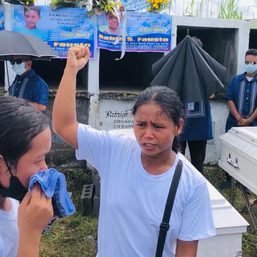

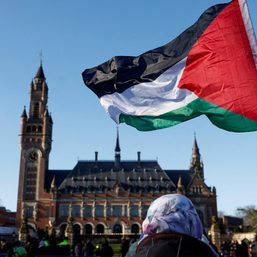



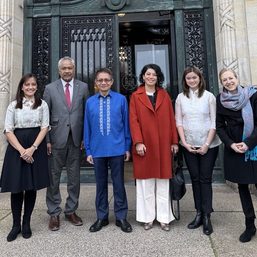




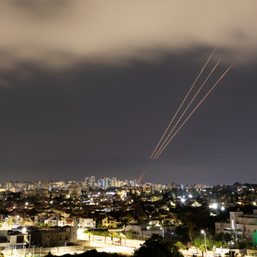
![[New School] The PH government should support the ICJ’s ruling against Israel](https://www.rappler.com/tachyon/2024/02/right-side-history-icj-february-21-2024.jpg?resize=257%2C257&crop=422px%2C0px%2C1080px%2C1080px)


![[OPINION] Is the Philippines ready for a refugee crisis?](https://www.rappler.com/tachyon/2024/06/thought-leaders-is-the-ph-ready-for-refugee-crisis.jpg?resize=257%2C257&crop=277px%2C0px%2C720px%2C720px)

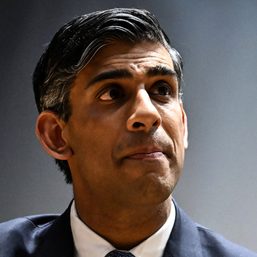
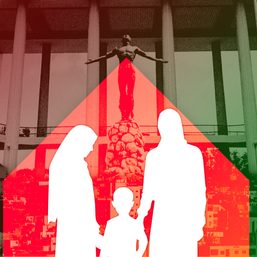
There are no comments yet. Add your comment to start the conversation.